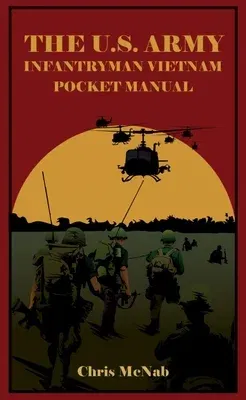Pocket manuals bring together a wealth of information from a wide
variety of training manuals and tactical documents.
Between 1964 and 1975, 2.6 million American personnel served within the
borders of South Vietnam during the Vietnam War, of whom an estimated
1-1.6 million actually fought in combat. At the tip of the spear was the
infantry, the "grunts" who entered an extraordinary tropical combat zone
completely alien to the world they had left behind in the United States.
In South Vietnam, and occasionally spilling over into neighboring Laos
and Cambodia, they fought a relentless counterinsurgency and
conventional war against the North Vietnamese Army (NVA) and Viet Cong
(VC). The terrain was as challenging as the enemy - soaring mountains or
jungle-choked valleys; bleached, sandy coastal zones; major urban
centers; riverine districts. Their opponents fought them with relentless
and terrible ingenuity with ambushes, booby traps, and mines, then
occasionally with full-force offensives on a scale to rival the
campaigns of World War II.
This pocket manual draws its content not only from essential U.S.
military field manuals of the Vietnam era, but also a vast collection of
declassified primary documents, including rare after-action reports,
intelligence analysis, firsthand accounts, and combat studies. Through
these documents the pocket manual provides a deep insight into what it
was like for infantry to live, survive, and fight in Vietnam, whether
conducting a major airmobile search-and-destroy operation or conducting
endless hot and humid small-unit patrols from jungle firebases. The book
includes infantry intelligence documents about the NVA and VC threats,
plus chapters explaining hard-won lessons about using weaponry,
surviving and moving through the jungle, tactical maneuvers, and
applications of the ubiquitous helicopter for combat and support.

